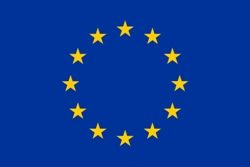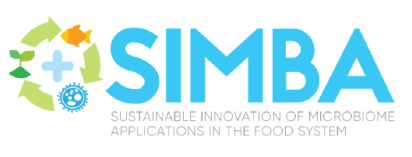Sustainable innovation of microbiome applications in food system
Providing innovative microbiome solutions to increase food security, nutrition, and help address key societal challenges
As the world population is continuously increasing, the supply of food with equal accessibility has become a major issue and future challenge. Microbes are an unexploited tool to increase food productivity and quality. The objective of SIMBA project is to harness complex soil and marine microbial communities (microbiomes) for the sustainable production of food. SIMBA will focus on two interconnected food chains, i.e. crop production, aquaculture.
SIMBA will first launch an in silico phase in order to analyze the further pre-existing microbiome databases and earlier studies, to identify the best microbiome layout capable of supporting food chain quality and productivity.
Microbiome-tailored interventions will be specifically developed including soil, plant, fish, aquaculture and food/feed processing towards optimal layout as defined in the modeling step, as follows:
- Identified optimal microbiome consortia will be designed and tested in lab, pot and field trials to improve plant productivity and health;
- Marine microbiomes will be applied to facilitate sustainable aqua and agriculture;
- Optimal microbe/microbe consortia will be used to convert raw-materials and residuals to high quality food, feed or finally to energy. In a final intervention step, these interactions will be monitored and tested in field, aqua-culturing, fish feeding and human studies, measuring the impact on microbiome consortia, interactions in association with factors evaluating their efficacy in terms of improving food security, productivity, quality, safety, sustainability, nutritional and health aspects. “Near to market” microbiome applications for sustainable food systems will be provided thanks to the interdisciplinary and cross-sectional nature of the proposal and the active role of small and medium sized enterprises (SMEs).
ACTIVITIES of the Bio Base Europe Pilot Plant
- Validation of the microbiome production process at pilot-scale
PARTNERS
- Luke, Natural Resources Institute Finland, FI (coordinator)
- University of Copenhagen, DK
- ENEA, IT
- NWO, NL
- University of Helsinki, FI
- Bio Base Europe Pilot Plant, BE
- Wageningen University, NL
- AquaTT UETP, IE
- FermBiotics, DK
- Fermentationsexperts, DK
- University di Parma, IT
- NIVA, NO
- Rheinische Friedrich-Willems-Universität Bonn, DE
- Matis ohf, IS
- Norwegian University for Life Sciences (NMBU), NO
- Zilt Proefbedrijf BV, NL
- NECTON, PT
- Agriges, IT
- Ctaqua, ES
- Bielefeld University, DE
- Allmicroalgae, PT
- Sudau Agro Gmbh, DE
- CCS Aosta srl, IT
SUPPORTED by:
The SIMBA project is funded by the European Union’s Horizon 2020 research and innovation programme under grant agreement No. 818431 (SIMBA). This output reflects only the author’s view, and the European Union cannot be held responsible for any use that may be made of the information contained therein.



 webdesign
webdesign